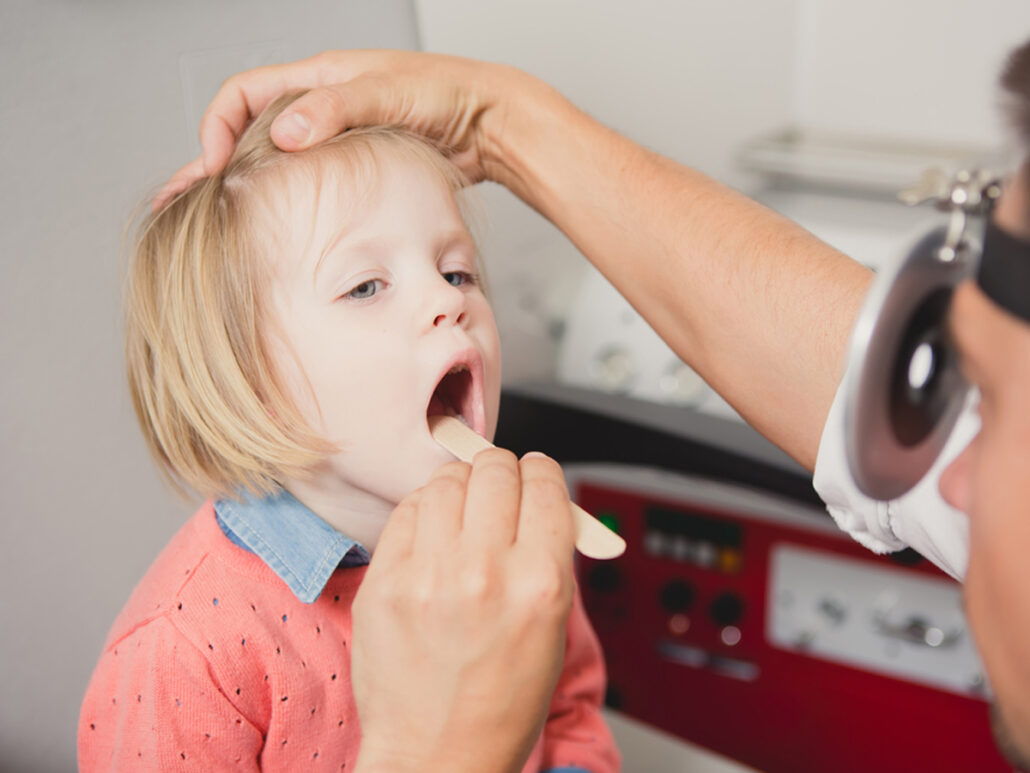Introduction to Pediatric Airway Management Solutions
Airway management is an important aspect of medical care for children with airway issues. These issues can be from congenital abnormalities or result from a variety of things that cause inflammation, such as infections or allergies. Ensuring a clear and functional airway is essential for children’s overall health and well-being, as it allows them to breathe, speak, and swallow properly. This blog post will discuss the various techniques and treatments available for pediatric airway management, providing valuable information for those interested in learning more about this essential aspect of pediatric healthcare.

The Benefits of Early Intervention
Early intervention in pediatric airway management is critical.
First, it helps prevent long-term complications such as chronic respiratory infections or obstructive sleep apnea. For children facing these challenges, consulting with a Pediatric ENT specialist in Philadelphia ensures tailored care that addresses their unique needs. Prompt diagnosis and treatment can help minimize the need for invasive procedures and reduce the risk of complications.
With early intervention, pediatric patients receive appropriate care and support, which can improve their overall health and well-being.
Several methods can be used to diagnose and measure the severity of airway obstructions. The Monroe pediatric ENT specialist at Penn Medicine Becker ENT & Allergy provide their pediatric patients with accurate diagnoses and appropriate treatment solutions based on their specific needs.
Strategies for Maintaining a Clear Airway in Children
Education and Training for Pediatric Airway Management
Healthcare professionals who care for children with airway issues must be well-trained in pediatric airway management techniques. This includes understanding the unique anatomy and physiology of the pediatric patient, recognizing signs of airway obstruction, and being familiar with various airway management devices and procedures. Ongoing education and training helps healthcare professionals stay up-to-date with the latest advancements in pediatric airway management.
Preoperative Preparation and Planning
For children undergoing surgery or other procedures that may affect their airway, thorough preoperative preparation and planning are essential. This includes a comprehensive assessment of the child’s airway, identifying any potential challenges or complications, and developing a detailed airway management plan. Preoperative preparation may also involve discussions with the child’s family to ensure they understand the procedure and any potential risks.
Use of Suctioning Techniques to Clear the Airway
Suctioning is a common technique used to clear secretions and debris from a child’s airway. This can be particularly important for children with conditions that cause excessive mucus production or difficulty clearing their airway. Healthcare professionals should be skilled in various suctioning techniques, such as nasopharyngeal suctioning and oropharyngeal suctioning, to effectively clear a child’s airway, when needed.
Utilizing Endotracheal Tubes and Other Devices
In some cases, children with airway problems may require the use of endotracheal tubes or other devices to maintain a clear and functional airway. These devices can be inserted through the mouth or nose and positioned in the trachea, also called tracheal intubation, to provide a secure airway during surgery or other procedures. Healthcare professionals must be knowledgeable about the various types of endotracheal tubes and other airway devices, as well as the appropriate techniques for endotracheal intubation and management.
Monitoring Lung Function During Surgery
Because general anesthesia can impair respiratory function, it is necessary to closely monitor a child’s lung function during surgery to ensure adequate oxygenation and ventilation. This can be done with various monitoring tools, such as pulse oximetry, capnography, and respiratory rate monitoring. These tools provide real-time information on the child’s oxygen saturation, carbon dioxide levels, and respiratory rate, allowing the surgeon to make any necessary adjustments and avoid respiratory complications.
Common Challenges and Complications of Pediatric Airway Management
Pediatric airway management can present several challenges and complications, including:

- Difficult airway anatomy: Children’s airways are smaller and more easily obstructed than adult airways, making intubation and other airway management techniques more challenging.
- Limited cooperation: Young children may be uncooperative or unable to follow instructions, making airway management more difficult.
- Rapid desaturation: Children have a higher metabolic rate and lower oxygen reserve than adults, which can lead to rapid oxygen desaturation during airway management procedures.
- Aspiration risk: Children may be at a higher risk of aspiration due to immature swallowing reflexes and the presence of foreign bodies or secretions in the airway.
Pediatric healthcare professionals must be prepared to address these challenges and complications to ensure safety and avoid respiratory distress.
Overview of Treatment Options and Technologies
There are various treatment options and technologies available for pediatric airway management, including:
- Continuous positive airway pressure (CPAP) therapy: This non-invasive treatment involves the use of a mask to deliver a constant flow of air, helping to keep the airway open and maintain adequate oxygen levels.
- High-flow nasal cannula (HFNC) therapy: This therapy delivers heated, humidified oxygen through a nasal cannula at high flow rates, providing both oxygenation and airway pressure support.
- Bronchoscopic interventions: In some cases, a bronchoscope may be used to visualize and treat airway abnormalities, such as removing foreign bodies or dilating airway stenosis.
- Surgical interventions: Various surgical procedures may be necessary to address airway issues, such as tracheostomy, laryngotracheal reconstruction, or adenotonsillectomy.
The choice of treatment depends on the child’s age, size, and clinical condition. Healthcare professionals should work closely with families to develop a comprehensive and individualized treatment plan.
Conclusion: The Path Towards Improved Outcomes
Pediatric airway management is a critical aspect of healthcare for children with airway issues. Early intervention, proper education and training, and the use of advanced treatment options and technologies can help ensure that these patients receive the best possible care. By addressing the unique challenges and complications of pediatric airway management, healthcare professionals can help improve outcomes and enhance the quality of life for children with airway issues. Consider scheduling with Penn Medicine Becker ENT & Allergy today and request an appointment.

